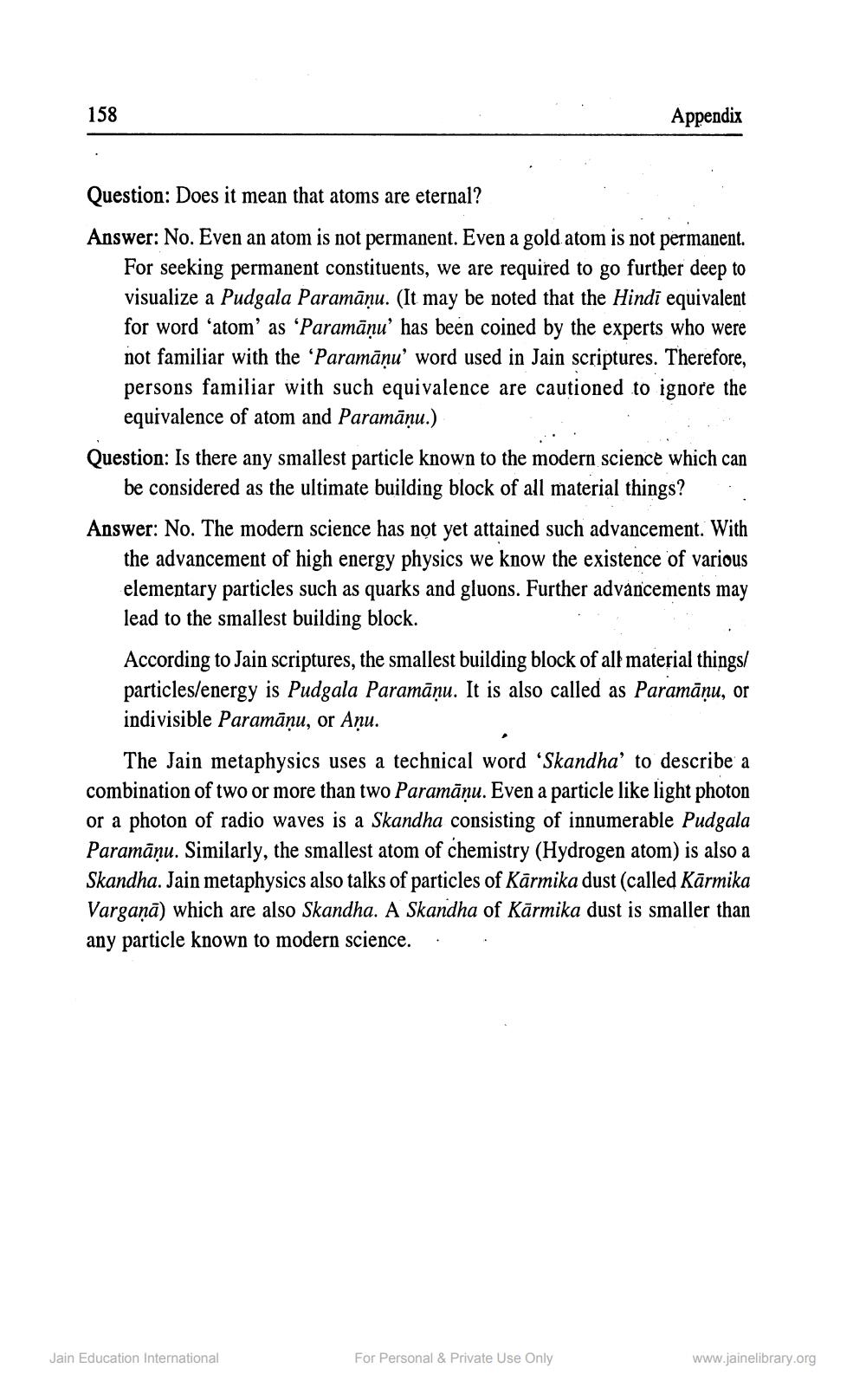________________
158
Appendix
Question: Does it mean that atoms are eternal? Answer: No. Even an atom is not permanent. Even a gold atom is not permanent.
For seeking permanent constituents, we are required to go further deep to visualize a Pudgala Paramāņu. (It may be noted that the Hindi equivalent for word ‘atom' as 'Paramāņu' has been coined by the experts who were not familiar with the 'Paramāņu' word used in Jain scriptures. Therefore, persons familiar with such equivalence are cautioned to ignore the
equivalence of atom and Paramāņu.) Question: Is there any smallest particle known to the modern science which can
be considered as the ultimate building block of all material things? Answer: No. The modern science has not yet attained such advancement. With
the advancement of high energy physics we know the existence of various elementary particles such as quarks and gluons. Further advancements may lead to the smallest building block. According to Jain scriptures, the smallest building block of all material things/ particles/energy is Pudgala Paramāņu. It is also called as Paramāņu, or indivisible Paramāņu, or Aņu.
The Jain metaphysics uses a technical word 'Skandha' to describe a combination of two or more than two Paramāņu. Even a particle like light photon or a photon of radio waves is a Skandha consisting of innumerable Pudgala Paramāņu. Similarly, the smallest atom of chemistry (Hydrogen atom) is also a Skandha. Jain metaphysics also talks of particles of Kārmika dust (called Kārmika Varganā) which are also Skandha. A Skandha of Kārmika dust is smaller than any particle known to modern science. . .
Jain Education International
For Personal & Private Use Only
www.jainelibrary.org




